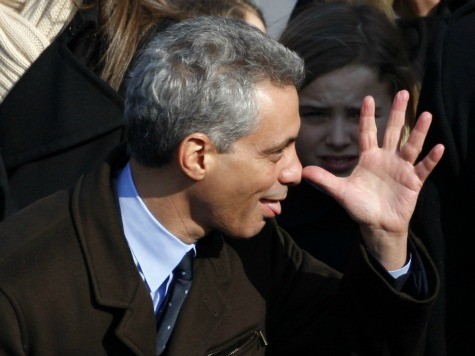Chicago Police Officer Richard A. Rizzo has been arrested four times in the past seven years, but that’s not enough to get him fired from the department. Rizzo has been arrested for domestic battery, child endangerment and aggravated assault with a gun. Yet while members of the general public are expected to pay fines or go to jail, prosecutors have dropped charges against Rizzo each and every time.
The Chicago Sun-Times reports:
On Dec. 30, 2010, Rizzo was arrested for aggravated assault with a gun and domestic battery after a fight with a 40-year-old man and the man’s 18-year-old son. Both of them lived with Rizzo in a Garfield Ridge bungalow.
The arresting officers said Rizzo punched the older man, grabbed the gun, put the muzzle in the man’s eye and told him, “How about I shoot you in the face?”
A month later, on Jan. 31, 2011, Rizzo was arrested again, this time for domestic battery, after officers said he grabbed his girlfriend “by her throat and began to strangle her.” The arresting officers said she broke away and locked herself in a bedroom. They said Rizzo kicked in the door just before they arrived.
The officers “photographed alleged injuries to victim and damage to the bedroom door,” and the incident was referred to the city’s Independent Police Review Authority for investigation.
According to the Sun-Times, Rizzo has never been disciplined for violating Chicago Police Department (CPD) rules that “generally target officers who break the law or otherwise bring discredit upon the department,” and records show he continues to make $80,724 a year working for the CPD.
Rizzo is not alone. The Chicago Police Department has a history of allowing officers who break the laws they are entrusted to uphold and enforce to remain employed–collecting high salaries and pensions.
Since 2004, 32 officers have been fired, or quit prior to being fired, collecting pensions that cost the city more than $1.2 million a year. Chicago officers cannot be stripped of their pensions unless they break the law while on duty.
Rizzo was reportedly relieved of his “police powers” on June 13, 2013 and placed on “call back” (desk duty), only after the Chicago Sun-Times asked about his status. Just as his fellow law-breaking officers, Rizzo remains eligible to collect his pension.

COMMENTS
Please let us know if you're having issues with commenting.